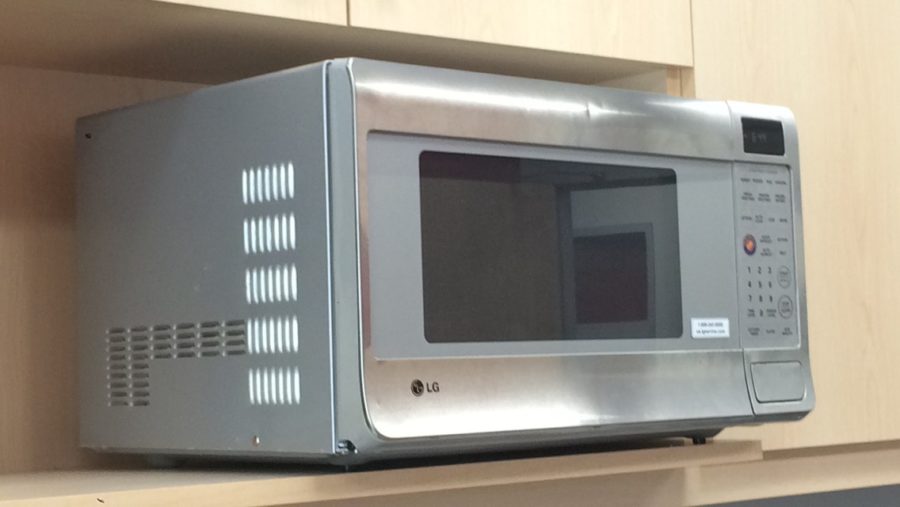Microwave acess initiative aims to address food insecurity on campus
A microwave is essential to living in the dorms.
March 1, 2018
Student Wellness is addressing food insecurity on campus. One of the program’s most recent initiatives was creating an infographic of microwaves available for public use on campus.
The infographic was created in response to advisors who have encountered students who go hungry on campus, many of which are first generation or low-income students. Some students can spend eight to 10 hours a day on campus, and some cannot afford to purchase hot meals.
The problem is not just at Iowa State. A study from the Wisconsin HOPE Lab, showed that of 4,000 community college students, half of them struggle with food security and/or housing security. The same organization found in another study that the problem is prevalent at four-year institutions. Twenty percent of respondents qualified as having very low food security.
Bringing awareness to microwave availability is just one way Student Wellness is addressing this issue. It is intended to help students bring food and expand the types of food they can prepare.
In addition to drawing awareness to microwaves already available, Student Wellness would like to expand microwave access. They are working with the Department of Residence (DOR) to host a microwave drive at the end of the semester.
Every year, the DOR tends to get a few microwaves in good condition that students no longer want when they move out. Student Wellness is planning to collect like-new or lightly used microwaves and place them around campus for public use.
If the drive doesn’t accumulate enough microwaves, Student Wellness will look into opportunities for funding for the microwaves.
However, the work is far from over. Brian Vanderheyden, Student Wellness manager, said they are still in the process of getting academic advisers and faculty on board with the initiative. The microwaves need to be monitored and cleaned, and faculty will be key in letting students know the microwaves are available.
Another way Student Wellness is hoping to increase awareness is getting an infographic on the MyState app. They have not yet approached administrators about the addition, but are hopeful they will be on board.
Vanderheyden said the microwave initiative is not a cure-all solution.
“That’s just one strategy connected to food insecurity. That does not solve this much larger issue,” Vanderheyden said.
Student Wellness has approximately 30 other strategies thus far to continually address this issue. Student Wellness is planning to work with other staff and student groups on campus to further combat student hunger in the future.
















